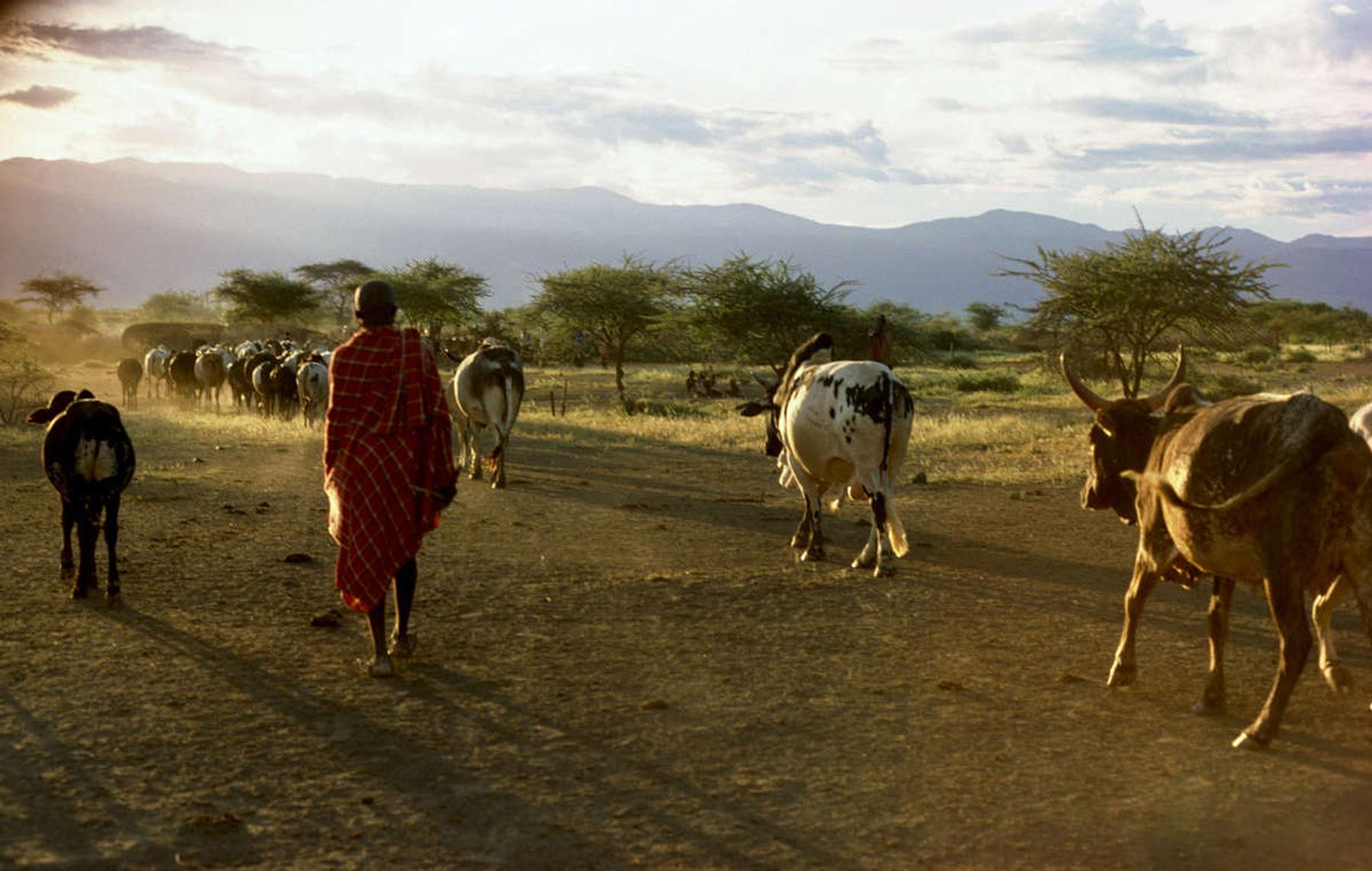News
Why Uasin Gishu Farmers Have Rejected Exploitative Carbon Credits Deal
Over 170 farmers stage protest over controversial contract changes that threaten land ownership and extend lease periods.

ELDORET, Kenya – More than 170 farmers in Uasin Gishu County have taken to the streets in fierce opposition to what they describe as an exploitative carbon credits agreement that threatens their land ownership and farming rights.
The farmers staged a dramatic protest outside the offices of Earth Tree company in Eldoret on Tuesday, expressing outrage over significant changes made to their original 2023 carbon credit contract with Green Planet.
The alterations have raised serious concerns about land grabbing and corporate exploitation in Kenya’s rapidly expanding carbon credit market.
What began as a promising partnership has transformed into what farmers call a “bait and switch” operation. Joseph Mosop and Hoseah Koech, leading the farmers’ protest, revealed that a new entity called Earth Tree had emerged with a drastically different agreement from the one they originally signed with Green Planet.
“People we don’t know are now asking for our title deeds, saying they need to search the land. This is very questionable. They want to take our land,” one farmer told reporters, capturing the deep suspicion that has gripped the farming community.
The most alarming change involves the companies’ demand for copies of farmers’ title deeds – a requirement that was not part of the original agreement. Farmers view this as a potential precursor to land appropriation, given the history of land disputes in Kenya.
Extended exploitation period
Perhaps even more concerning is the extension of the lease period from 30 years in the original Green Planet agreement to 45 years under the new Earth Tree contract.
This 50% increase has farmers worried they will never see the benefits of their investment.
“The addition of years of lease will be a disservice to us and our people. We shall not be able to enjoy the fruits of those investments, and our land will probably have been snatched by the end of that period,” the farmers’ spokesperson warned.
For smallholder farmers already struggling with poverty and food security, losing control of their land for nearly half a century represents an existential threat to their livelihoods and their children’s future.
The new agreement has also stripped away crucial protections that farmers had negotiated in their original contract. Under the Green Planet deal, farmers could withdraw from the arrangement within the first five years by providing seven months’ written notice – a vital safety valve for those who might experience buyer’s remorse.
The Earth Tree contract eliminates this provision entirely, effectively trapping farmers in a 44-year commitment with no escape route. The new agreement only allows the company to harvest trees until the contract expires, giving farmers no control over their own land use decisions.
Adding insult to injury, the revised contract transfers control of tree seedling provision from farmers to the company. Originally, farmers would supply their own seedlings, maintaining some control over the species and quality of trees planted on their land. Now, Earth Tree demands exclusive rights to provide seedlings and manage the trees throughout the contract period.
Farmer Kipruto Maiyo expressed his bewilderment: “I was shocked when people came to my farm and introduced themselves as being from Earth Tree, yet I had signed an agreement with Green Planet. To make matters worse, they want to be the ones managing the trees.”
A pattern of carbon credit exploitation
The Uasin Gishu protest occurs against a backdrop of mounting scandals in Kenya’s carbon credit sector. Recent revelations have exposed how international companies are exploiting African farmers and indigenous communities through fraudulent carbon credit schemes.
In October 2024, US courts charged executives of CQC Impact Investors with defrauding carbon credit buyers of over $100 million through manipulated data on cookstove projects in Malawi, Zambia, and Angola. The company also operates in Kenya, raising questions about the integrity of carbon credit projects across East Africa.
Meanwhile, the controversial Northern Kenya Rangelands Carbon Project – used by tech giants Netflix and Meta – has been suspended twice by certification body Verra due to violations of indigenous peoples’ rights. The project severely restricts traditional grazing practices of the Maasai, Borana, and Samburu communities.
When farmers attempted to seek clarification about the contract changes, Earth Tree officials reportedly barred them from accessing company offices. The company’s gates remained closed to both farmers and media during the protest, highlighting the lack of transparency that has characterized the carbon credit industry.
“From today, we shall make sure that they leave. We will not engage with them at any point since they have shortchanged us,” declared farmer Mannasseh Koech, reflecting the community’s determination to resist what they see as corporate colonialism.
The Uasin Gishu farmers’ rebellion represents more than a local contract dispute – it’s a microcosm of how global climate finance mechanisms can become tools of exploitation rather than environmental progress.
While wealthy corporations in developed countries purchase carbon credits to continue polluting, African farmers bear the costs through restricted land use and surrendered autonomy.
The carbon credit market, worth billions of dollars globally, was designed to incentivize emissions reductions and environmental conservation.
However, the Kenyan experience suggests that without proper regulation and community protections, these schemes can become vehicles for a new form of land grabbing disguised as climate action.
The farmers have vowed to continue their resistance until the controversial clauses are removed and their land rights are respected. Their struggle highlights the urgent need for stronger regulatory frameworks governing carbon credit projects in Kenya and across Africa.
As Kenya positions itself as a leader in carbon markets through initiatives like the Africa Carbon Markets Initiative, the government must ensure that smallholder farmers and indigenous communities are protected from exploitation by international carbon credit companies.
Carbon credits let farmers earn money by reducing emissions, like planting trees or using sustainable methods.
Each credit equals one tonne of CO2 avoided, verified by experts. Companies buy these to offset emissions, funding farmers. In Kenya, this boosts income but risks exploitation.
The Uasin Gishu farmers’ rejection of the Earth Tree contract serves as a powerful reminder that true climate action cannot be built on the exploitation of Africa’s most vulnerable communities. Their fight for land rights and fair treatment deserves support from all Kenyans who believe in environmental justice and economic equity.
Kenya Insights allows guest blogging, if you want to be published on Kenya’s most authoritative and accurate blog, have an expose, news TIPS, story angles, human interest stories, drop us an email on [email protected] or via Telegram
-

 News2 weeks ago
News2 weeks agoKenyan Driver Hospitalized After Dubai Assault for Rejecting Gay Advances, Passport Seized as Authorities Remain Silent
-

 Investigations1 week ago
Investigations1 week agoMoney Bior, Lawyer Stephen Ndeda Among 18 Accused Of Running An International Fraud Ring Involved With Scamming American Investor Sh500 Million
-

 Investigations7 days ago
Investigations7 days agoNestlé Accused of Risking Babies’ Health in Africa with ‘Toxic’ Cerelac Product Sold Highest in Kenya
-

 Business2 weeks ago
Business2 weeks agoConstruction Of Stalled Yaya Center Block Resumes After More Than 3 Decades and The Concrete Story Behind It
-

 News1 week ago
News1 week agoTSC Announces Major Policy Shift To End Transfer Of Promoted Teachers
-

 News6 days ago
News6 days ago48-Year-Old Woman Who Pushed 25-Year-Old Boyfriend To Death From 14th Floor Kilimani Apartment Arrested
-

 Investigations3 days ago
Investigations3 days agoHow Land Grabbing Cartels Have Captured Ardhi House
-

 Investigations1 week ago
Investigations1 week agoKDC Rocked With Fresh Sh500 Million Tender Scam















